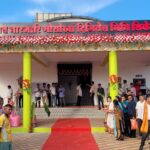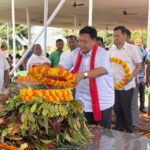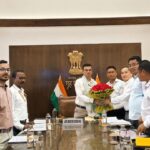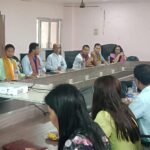KOKRAJHAR, OCT 24: Pramod Boro, the chief executive member of Bodoland Territorial Region (BTR) has directed immediate remedial measures to address the alarming rise in malaria cases in Kokrajhar.
During a review of the meeting held on Wednesday at the BTC Legislative Assembly Auditorium, Boro emphasized the necessity of awareness campaigns to educate the public on malaria prevention.
He stressed the importance of informing the community about symptoms, transmission, and preventive practices to curb the spread of the disease. To facilitate a coordinated response, a Joint Action Committee has been established under the chairmanship of Principal Secretary of BTC, Akash Deep, with the Secretary of Health serving as the Member Secretary. This committee will include the Deputy Commissioner of Kokrajhar, representatives from Kokrajhar Medical College, and the Health Department to monitor and implement necessary preventive measures.
In light of the shortage of field staff in affected areas, CEM Boro instructed the immediate deployment of malaria field staff from unaffected regions. He also called for prompt collaboration with the State Health Department to initiate an entomological survey in Kokrajhar District.
Recent reports indicate a troubling surge in malaria cases, with 922 confirmed infections in Kokrajhar compared to just 256 cases in 2023.
The meeting was attended by BTC EM for Health Arup Kumar Dey, Deputy Commissioner of Kokrajhar Masanda Magdalim Pertin, the Principal of Kokrajhar Medical College, BTC Secretary for Health, and senior departmental officials.
Later, at the BTC Secretariat, CEM Pramod Boro also reviewed various flagship health schemes aimed at fostering a healthier Bodoland Territorial Region (BTR). Presentations included the Aai Onsai Bithangki initiative, the Neighbourhood of Care (NoC) program, and the Bodoland Cancer Care Trust, along with discussions on their budgets and timelines. The plans and activities of the Communities Vision Document Committee were also evaluated, along with preparations for a Two-Day International Workshop focused on “The Process of Reconciliation of BTR: Status and Further Steps Forward-Linking Research and Civil Society Process.”







